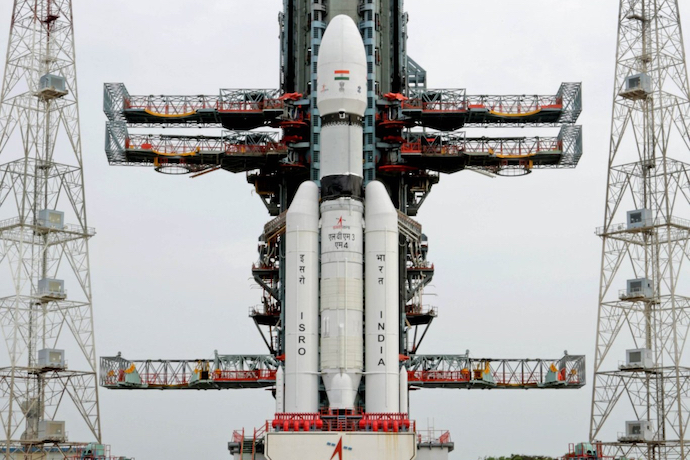The Texas House Fee was not too long ago unveiled by Governor Greg Abbott at NASA’s Johnson House Heart in Houston, Texas. Abbott’s aim is to cement Texas’ place as a nationwide chief within the house business. On the identical time, SpaceX plans its subsequent Starship launch for early Could on the firm’s launch web site in Boca Chica, Texas. The absolutely stacked 121-meter or practically 400-foot-tall Starship platform is important to NASA’s future moon missions.
In a big replace on America’s lunar ambitions, NASA’s Artemis program faces altered timelines as Starship and Lockheed Martin’s Orion spacecraft—central to the mission of returning Individuals to the Moon—confront technical and logistical challenges. The timeline for America’s subsequent Moon touchdown, initially slated for 2024, has now been deferred to late 2026 on the earliest.
The Orion spacecraft, which efficiently accomplished an uncrewed lunar orbit in the course of the Artemis 1 mission in 2022, has since grappled with technical postponements. Present plans anticipate that 4 NASA astronauts will orbit the Moon no sooner than September 2025, setting the stage for a subsequent touchdown on the lunar floor utilizing Starship no sooner than 2026. As per the contract stipulations with NASA, Elon Musk’s SpaceX is remitted to perform an uncrewed lunar touchdown with Starship previous to any crewed try.

Concurrently, the geopolitical panorama of house exploration is witnessing a burgeoning alliance inside the BRICS consortium. Notably, nations equivalent to Saudi Arabia, Egypt, the United Arab Emirates, Iran, and Ethiopia are in talks to assist collaborative lunar ventures spearheaded by China and Russia, probably accelerating their place within the extraterrestrial exploration area.
Since Beijing’s December 2013 Moon touchdown, China’s space-related accolades embody constructing a crewed house station referred to as Tiangong, sending a robotic rover to Mars, and turning into the primary nation to make a managed touchdown on the far aspect of the Moon. Their 2022 white paper focuses on these components of human spaceflight and lunar and planetary exploration missions, and their checklist of achievements in these areas continues to stack up. Simply final month, China launched a relay satellite tv for pc and two mini-satellites for the Chang’e 6 situated on the far aspect of the Moon. All three probes efficiently entered lunar orbit in late March.
Amid geopolitical tensions reverberating via terrestrial alliances, the material of worldwide cooperation in house exploration is present process a profound reconfiguration. In a transfer reflecting broader diplomatic estrangements, the European House Company has severed its Russian partnerships in response to the battle in Ukraine. Contrasting this Western realignment, Beijing maintains its collaborative stride with Moscow, undeterred by terrestrial disputes.
Russia, with a storied legacy in house stations from the defunct Mir to the Worldwide House Station (ISS), now aspires to reinstate its autonomy within the cosmos. In a declaration resonating with the ambition of Soviet-era house endeavors, Russian President Vladimir Putin has signaled the inauguration of Russia’s new orbital platform, focused to be partially operational by 2027. This endeavor marks a big pivot from worldwide dependencies towards a sovereign orbital outpost.
Concurrently, in searching for companions for this audacious challenge, Moscow has initiated negotiations inside the BRICS meeting, considering a broader consortium that will contain emergent space-faring nations in a shared house station endeavor. This growth may probably shift the present dynamics of worldwide house cooperation, presenting new vectors of collaboration within the excessive frontier.
China and Russia even have their very own Moon plans, notably the Lunar Analysis Station (ILRS) challenge. The 2 international locations signed an settlement in 2021 to construct a “complete scientific experiment base” on the lunar floor and or in lunar orbit with the intention to perform “multidisciplinary and multiobjective scientific analysis actions.” Quickly after, South Africa, Egypt, Venezuela, Pakistan, Azerbaijan, and others expressed an curiosity or signed onto the challenge.




In the meantime, Beijing’s dependable and evolving Lengthy March rocket household has helped launch satellites for African international locations like Algeria, Ethiopia, Nigeria, and Sudan, in addition to Egypt which can be internet hosting the African House Company headquarters in Cairo. China started a satellite tv for pc meeting and check heart in Cairo in 2019.
Washington is especially involved about Beijing and Moscow’s Iranian house cooperation. Tehran’s house program is deeply troubling to the U.S. due to its bigger geopolitical implications. On February 29, Russia launched an Iranian-made analysis satellite tv for pc into orbit, and in January, Iran claims it launched three satellites into orbit. Tehran plans for its Chabahar House Heart in southeast Iran to be the largest house launch web site in West Asia.
The opposite BRICS members like Brazil, India, Saudi Arabia, and the UAE are in a precarious spot. They’re signatories of the U.S. State Division and NASA’s Artemis Accords, the non-binding bilateral preparations associated to anticipated norms in outer house. That is forcing them to carry out a balancing act with the U.S. and China/Russia.
India’s house ambitions have soared remarkably because the Seventies, with the Indian House Analysis Organisation (ISRO) on the helm. In a strategic push for interplanetary acclaim, India triumphed with its maiden voyage to Mars in 2013, a story underscored by an admission from ISRO’s chairman: the mission was partly fueled by the drive to outpace China after its Martian aspirations, tethered to the Fobos-Grunt mission of 2011, faltered.
A decade of technological developments and strategic planning culminated on 23 August 2023, when India’s lunar probe made its historic landing on the Moon’s floor—an occasion meticulously timed with the annual BRICS Summit, signaling India’s elevated standing within the house race. This lunar feat arrived on the heels of Russia’s Luna 25 mishap, casting a stark distinction between the 2 space-faring nations.
In a subsequent strategic alliance, India introduced in December an initiative fostered with American experience: the coaching and dispatch of an Indian astronaut to the Worldwide House Station (ISS) by the tip of 2024, marking yet one more milestone in India’s ascendant house narrative. This collaboration stands as a testomony to the rising worldwide partnerships defining the brand new age of house exploration.




Brazil has been orchestrating a classy house partnership with each American enterprises and the BRICS coalition. The Sino-Brazilian chapter on this world house saga has been unfolding for over three many years, encapsulated by the China-Brazil Earth Sources Satellite tv for pc (CBERS) challenge—an formidable collaboration that bore fruit with the inaugural launch in 1999. This initiative has since been instrumental within the growth of six earth-observation satellites, cementing the function of the 2 nations within the vanguard of spaceborne environmental monitoring.
This enduring partnership underpins the BRICS Committee on House Cooperation, with a pointed emphasis on collaborative commentary and the open change of satellite tv for pc information amongst the BRICS Distant Sensing Satellite tv for pc Constellation—a strong device within the shared stewardship of Earth’s pure assets.
But, Brazil’s house technique has deftly embraced versatility; the nation ratified a pivotal settlement in 2019, facilitating the inflow of American house applied sciences—a transfer that strategically positions Brazil as a nexus for house launches inside the Western hemisphere. Cementing its dedication to worldwide house collaboration, Brazil grew to become a signatory of the Artemis Accords in 2021, a gesture that solidifies its aspirations to be part of humanity’s subsequent lunar chapter. This alignment with the Accords signifies Brazil’s nuanced navigation of house diplomacy, balancing relationships with each historic companions and emergent alliances.
Saudi Arabia, which signed the Artemis Accords in July 2022, has an identical story. Regardless of being a long-time American ally, Riyadh has a wealthy house historical past with China and Russia. The Arab nation can also be in lively negotiations with Chinese language house corporations for a deal protecting know-how switch for satellite tv for pc software program, amongst different house actions. The oil-rich Kingdom has formidable targets together with extra Moon involvement, and in the future having its indigenous launch capabilities. The Saudis not too long ago made an unprecedented transfer through a submitting to the United Nations to withdraw from the 1979 Moon Settlement, the primary nation to take action. Three Saudi Arabian nationals have already made it into house.
The UAE’s house aspirations reached a brand new zenith with its Mars Hope Probe orbiting Mars in February 2021. Additional increasing its cosmic footprint, the UAE’s College of Sharjah has joined the China-Russia-led Worldwide Lunar Analysis Station challenge. Concurrently, the Mohammed bin Rashid House Centre is broadening its partnership with NASA, offering a key airlock element for the Artemis Gateway lunar station, alongside worldwide businesses just like the Canadian, European, and Japan Aerospace Exploration Companies.
China’s house technique is casting its gaze past NASA, figuring out the burgeoning capabilities of personal sector giants—SpaceX, Lockheed Martin, Boeing, Northrop Grumman, Blue Origin, and Axiom House—as the first sources of aggressive rigidity. The nation has voiced issues over SpaceX’s Starlink constellation, becoming a member of Russia and Iran in denouncing the challenge for its potential repercussions on world safety.
Regardless of attaining a flawless launch report in 2023, China shouldn’t be resting on its laurels. The nation is intensively working to pivot in direction of reusable rocket know-how by 2026, a function emblematic of SpaceX’s innovation, and is setting formidable targets to dispatch Chinese language astronauts to the lunar floor by 2030.
Whereas dealing with contrasting fortunes characterised by periodic delays, U.S. house businesses may witness China’s swift execution of expansive initiatives—a proficiency which may quickly manifest within the augmentation of its orbital outpost from three to 6 modules. Hypothesis is ripe that the forthcoming Chinese language ventures—Mengzhou (Dream Vessel), the lander Lanyue (Embracing the Moon), and the formidable Lengthy March 10 rocket—might be the vessels that inscribe Chinese language footprints on the Moon, persevering with the nation’s storied journey into the cosmos.
Total, it seems there isn’t a stopping this new house race. It’s a race requiring an enormous sum of money and mind energy, therefore the need for house diplomacy. The increasing BRICS alliance does pose formidable competitors for America. This implies house diplomacy will develop in overseas coverage significance. Artemis is essential for the U.S., and with 38 international locations presently signed up. Washington and NASA will wish to maintain these international locations on board, or higher but develop the checklist of companions, prefer it did this week with Sweden and Switzerland turning into the latest signatories.
Whatever the house race consequence, expertise reveals scientific innovation on this area practically at all times means a optimistic return on funding for humanity and our future generations.
Going again to the Moon and past can be tough. It is going to be costly. However as a species, it’s a journey we should take.
For those who’re desirous about writing for Worldwide Coverage Digest – please ship us an e mail through submissions@intpolicydigest.org